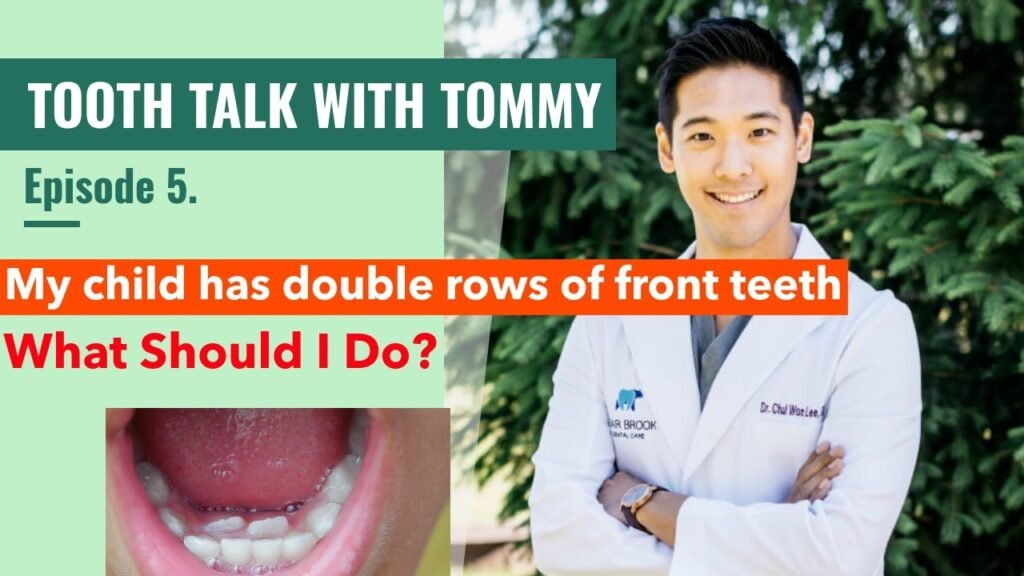When to Worry About Missing Permanent Teeth

Are you concerned about your child's permanent teeth not coming in? It's natural to wonder when to start worrying about delays in tooth eruption. In this article, we'll discuss the typical timeline for permanent teeth to emerge, signs that may indicate a problem, and when it's time to consult a dentist. Stay informed and proactive in your child's dental health journey.
- Age 7 or older and no signs of permanent teeth emerging
- Family history of late tooth development
- Persistent baby teeth beyond age 12
- Symptoms such as pain, swelling, or infection
- Consultation with a dentist or orthodontist recommended
When do permanent teeth typically come in?
Around the age of 6 or 7, children start to lose their baby teeth as permanent teeth begin to emerge. This process usually continues until around the age of 21, when most people have a full set of 32 permanent teeth, including wisdom teeth. It is important to monitor the development of permanent teeth and seek dental care if there are any concerns about their growth.
The timeline for permanent teeth coming in can vary from person to person, but generally, the process begins around age 6 or 7. As children grow and develop, their permanent teeth gradually replace their baby teeth, resulting in a full set of adult teeth by the early twenties. Regular dental check-ups can help ensure that permanent teeth are coming in properly and any issues are addressed promptly.
It is essential to maintain good oral hygiene habits during the transition from baby teeth to permanent teeth to ensure proper alignment and health of the new teeth. Brushing twice a day, flossing regularly, and visiting the dentist for check-ups and cleanings can help prevent issues with permanent teeth as they come in. By staying proactive about dental care, individuals can enjoy a healthy and beautiful smile for years to come.
Why isn't my permanent tooth coming in?
If you're wondering why your permanent tooth is not coming in, it could be due to impaction caused by a lack of space in your mouth, narrow jaws, or prematurely lost baby teeth. In such cases, early orthodontic treatment is often recommended to create space and assist the tooth in erupting correctly.
At what point should I start to worry about my teeth not coming in?
If you notice that your child's teeth are not coming in as expected, it's important to keep in mind that every child is different. While some children may get their first teeth as early as 4 months old, others may not get theirs until closer to 12 months. However, if your child has not developed any baby teeth by the age of 12 months, it is recommended to bring them to the dentist for a check-up.
It's important to monitor your child's dental development and be aware of any delays or abnormalities. While the timing of when teeth come in can vary, if your child has not shown any sign of baby teeth by 12 months, it is best to seek professional advice from a dentist to ensure their oral health is on track.
Understanding the Risks of Missing Permanent Teeth
Missing permanent teeth can have a significant impact on a person's overall oral health and self-esteem. From difficulty chewing and speaking properly to potential shifting of surrounding teeth and jawbone deterioration, the risks associated with missing teeth are numerous. It is crucial to understand these risks in order to make informed decisions about treatment options, such as dental implants or bridges, to prevent further complications and maintain a healthy, functional smile for years to come. By addressing missing permanent teeth promptly, individuals can avoid potential long-term consequences and enjoy improved oral health and confidence.
Discovering the Importance of Timely Dental Care
Regular dental check-ups are essential for maintaining good oral health and preventing serious dental issues. By visiting your dentist regularly, you can catch any potential problems early on, saving you time, money, and discomfort in the long run. Timely dental care also plays a crucial role in preventing gum disease, cavities, and tooth decay, ensuring that your smile stays bright and healthy for years to come.
Discover the importance of timely dental care and prioritize your oral health today. With regular check-ups and cleanings, you can avoid costly and painful dental procedures down the line. Don't wait until it's too late to take care of your teeth – schedule your next dental appointment and ensure a lifetime of healthy smiles.
If you have concerns about your child's permanent teeth not coming in, it is important to consult with a dentist for a thorough evaluation. Early detection and intervention can help address any underlying issues and ensure proper dental development. By seeking professional guidance, you can secure your child's oral health and overall well-being for the future. Don't hesitate to take action and schedule an appointment if you have any doubts or questions about your child's dental development.